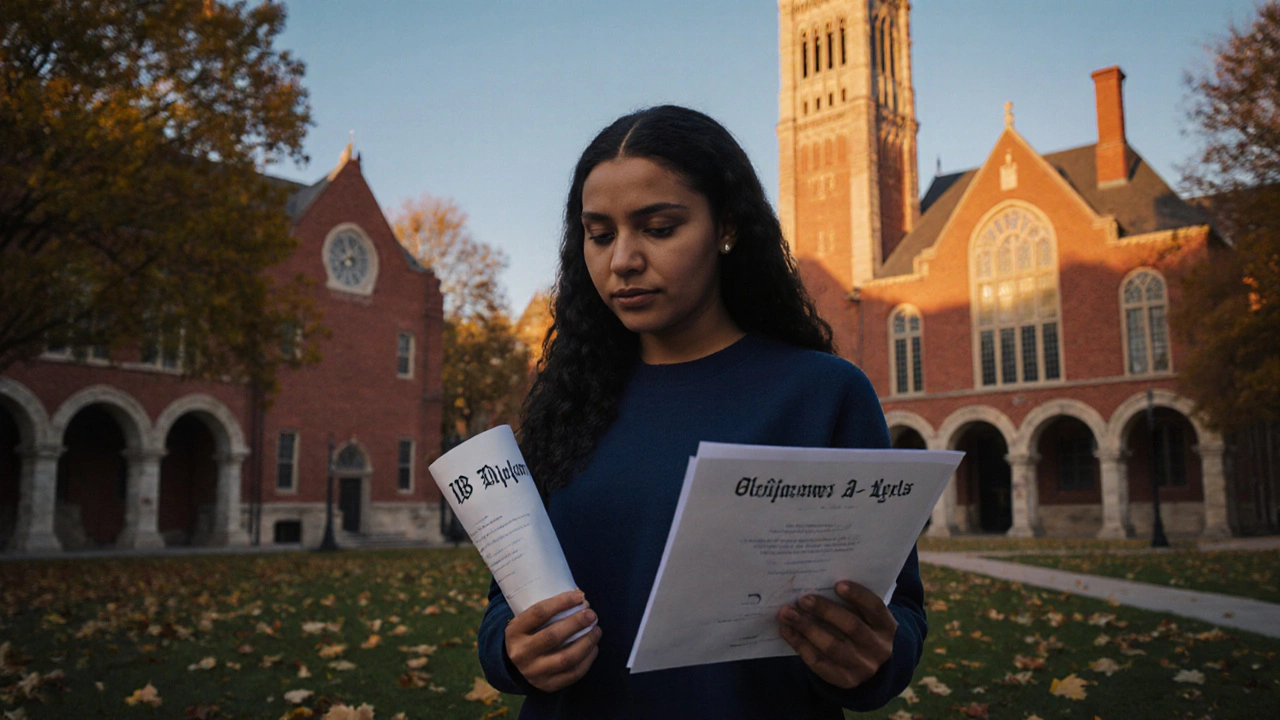IB A-Levels Comparison: What You Need to Know
When looking at the IB A-Levels comparison, a side‑by‑side look at the International Baccalaureate and the UK Advanced Level system, also called IB vs A‑Levels, you’re really asking how two very different qualifications stack up for university, skills and personal growth. The International Baccalaureate (IB), a globally recognised programme that mixes theory and real‑world projects focuses on breadth and interdisciplinary learning, while the A‑Levels, a subject‑specific route popular in England, Wales and Northern Ireland lets you dive deep into a few chosen topics. Both paths feed into University Admissions, the process that decides which courses you can study after school, but they do it in very different ways.
Core Structure and Curriculum
The first big semantic tie is that IB A-Levels comparison encompasses curriculum design. In the IB, you study six subjects across groups – languages, sciences, maths, arts – plus a Theory of Knowledge course, an extended essay and Creativity‑Activity‑Service hours. This mix aims to develop a well‑rounded thinker. By contrast, A‑Levels let you pick three or four subjects to study in depth, often matching your future career plans. The IB’s requirement for a broad subject base creates a wider knowledge pool, while A‑Levels’ narrow focus can give you a head‑start in specialised university modules.
Because of this structural split, the way you plan your study time changes. IB students juggle multiple deadlines and project work, meaning good time‑management is essential. A‑Level students can concentrate on mastering a few subjects, which may feel less hectic but demands higher mastery levels for each. Both systems ask for self‑discipline, yet the type of discipline differs – breadth versus depth.
These curriculum differences also shape exam formats. The IB relies on a mix of internal assessments graded by teachers and external exams written in May. A‑Levels are mostly external exams taken at the end of the two‑year course, with some coursework in subjects like Art. This assessment blend means IB learners get continuous feedback, while A‑Level students face a high‑stakes final test.
When you think about university entry, the two routes send different signals. IB’s balanced score (out of 45 points) signals a student who can handle varied content and independent research – traits many UK universities value for competitive courses like Medicine or Law. A‑Level grades (from A* to E) highlight depth of knowledge in specific subjects, which can be a decisive factor for courses that require strong foundations, such as Physics or Engineering. Admissions officers often convert IB points into UCAS tariff points, so both qualifications sit on the same numeric scale, but the narrative they convey differs.
Another entity in this comparison is learning style. Learners who enjoy project‑based work, reflective essays and community service tend to thrive in the IB. Those who prefer clear exam goals, targeted revision and a focus on a few subjects may find A‑Levels a better fit. This link between learning style and qualification choice is echoed in many of our articles on adult learning theories, study techniques and even scholarship tips – all of which stress aligning your approach with the right curriculum.
Finally, it’s worth noting how each route fits into broader education trends. The IB is growing in popularity among international schools and families that move between countries, because its standards are accepted worldwide. A‑Levels remain the backbone of UK secondary education and are deeply embedded in the national exam system. Both qualifications are adapting – the IB recently introduced a new digital assessment format, and A‑Levels have begun offering modular grading options. Keeping an eye on these updates helps you make a future‑proof decision.
Below you’ll find a curated set of articles that dig deeper into the topics mentioned here – from choosing subjects that suit your strengths, to mastering exam techniques, to understanding how each qualification impacts scholarship chances and university placement. Use this collection to map out your own pathway and decide which side of the IB A-Levels comparison aligns best with your goals.

Yale Admission: Does the Ivy League School Prefer IB or A‑Levels?
- by Eliza Fairweather
- on 14 Oct 2025
Discover whether Yale prefers the International Baccalaureate or A‑Levels for admission, learn how each qualifies, and get a practical checklist to boost your chances.
